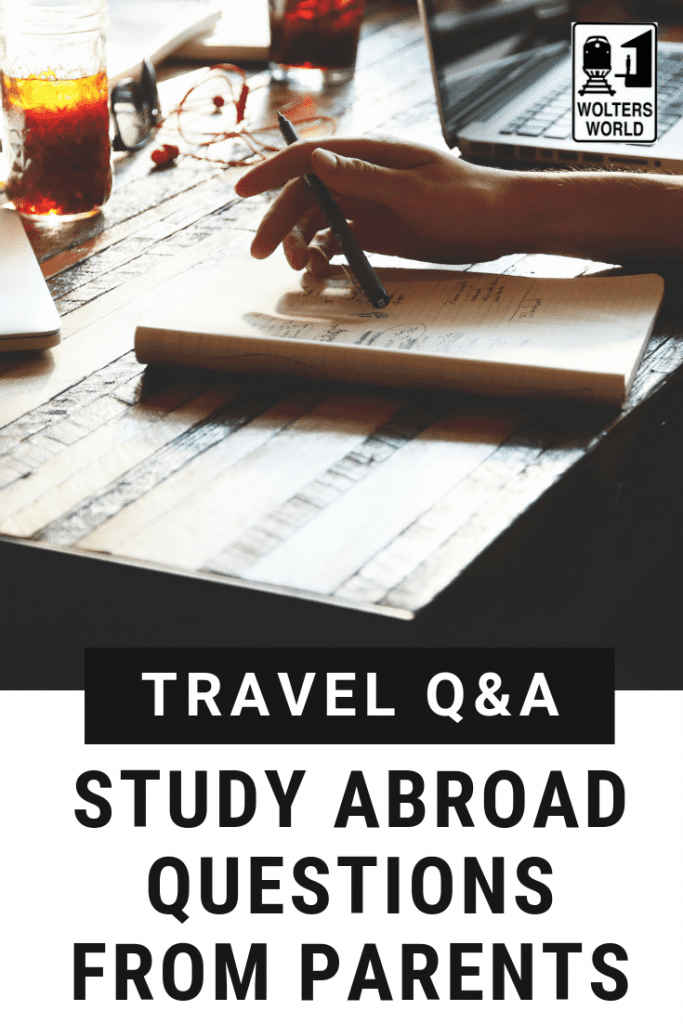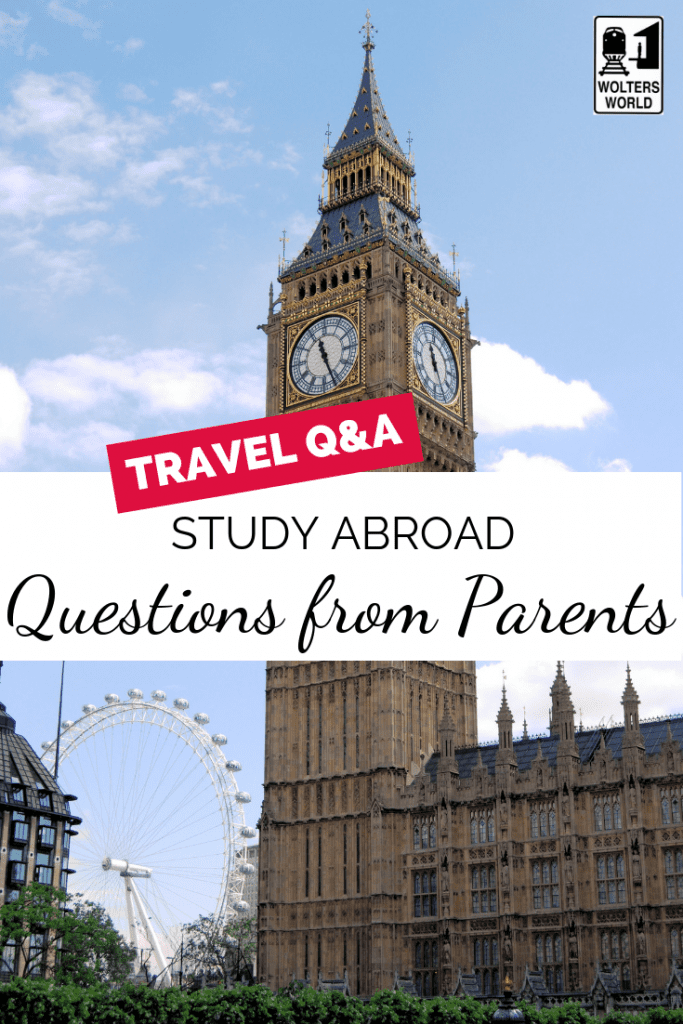Hey there, fellow travelers! Today, we’re in London answering reader questions. I have gotten a lot of messages from parents who have questions about study abroad programs. I have participated in several foreign exchange programs, for high school, college, Master’s and Doctorate programs and I now lead study abroad programs for Universities. I’ve either studied or taught in the USA, Germany, Brazil, Lithuania, Italy, Argentina, Portugal, Finland, Austria, Australia, and China. So, let’s dive into some questions to help put your mind at ease!
Will My Study Abroad Student Be Safe?
Nobody can guarantee safety, and accidents do happen, but accidents happen everywhere. Your child won’t likely be any safer at home than they will in a study abroad program. If a region or country becomes unsafe, most programs will pull their students out of that region. The administrators of these programs are doing the research and have all students’ safety and well-being in mind. Any safety issues I’ve seen or heard are due to bad decision making by the student, not anything the program or location caused.
Read: Honest Travel Safety Advice Everyone Should Know

Is Study Abroad Expensive?
This will depend on the program you choose. Some universities charge the same tuition abroad as they charge at home, other universities will charge the amount of the visiting university, and others are somewhere in between. The total cost is also going to depend on the destination and your student. If they choose to study in Switzerland, the cost of living is much higher than if they decide to study in Portugal. Overall, a study abroad program won’t cost much more than your university program at home.
Watch: What are the Biggest Costs of Studying Abroad?
Should I Visit my Study Abroad Student?
You should definitely take the opportunity to visit your child while they are studying abroad. It’s a great chance to learn from them, see how they are adapting to a new country, and maybe even do a bit of traveling together. I would not recommend visiting in the first two months. By visiting in the third month or later, because that’s when they are getting used to everything, settling in, and probably even getting a little homesick.
What Happens if My Kid Gets Sick?
Most study abroad programs have insurance programs included, but you should also check with your insurance provider to see if they cover international travel. I recommend buying secondary insurance. With that, your child will still have to pay out of pocket, but you will be reimbursed by the insurance company. For this reason, you might consider giving them an emergency credit card with a bigger line of credit they can use if something happens. The good news is, healthcare is cheaper in nearly every other country than it is in the US. If you are coming to the US to study, make sure you have insurance lined up or it can be very expensive to receive treatment.
Is Study Abroad Worth It?
A lot of parents want to know if study abroad is worth it. It’s reasonable to be skeptical that study abroad is just one long party and they won’t get anything out of the program. I’ll be honest, they are going to party, and it’s going to be the time of their life. In the process, they’re going to learn about new cultures, how to adapt to uncomfortable situations, problem-solve and grow as a person. Study abroad changes everyone, for the better. It also looks great on your resume. So, yes, I think it is 100% worth it.
I hope these answers help assuage your fears about sending a child to study abroad. If you have more questions or even your own experiences, tell us about them in the comments! For more travel tips and advice, check out these blog posts and videos:

